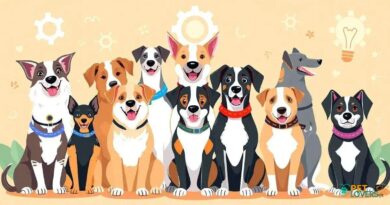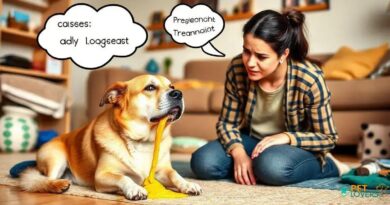What is handler tips for dogs
Understanding Handler Tips for Dogs
Handler tips for dogs encompass a variety of techniques and strategies that can enhance the relationship between a dog and its handler. These tips are essential for anyone looking to improve their dog handling skills, whether for training, showing, or simply enjoying a better companionship. Understanding the nuances of dog behavior and communication is the first step in becoming an effective handler.
Establishing Trust with Your Dog
One of the most crucial handler tips for dogs is to establish trust. Dogs are sensitive creatures that thrive on positive reinforcement and consistency. Building trust involves spending quality time with your dog, engaging in activities they enjoy, and being patient during training sessions. When a dog trusts its handler, it is more likely to respond positively to commands and cues.
Effective Communication Techniques
Communication is key in dog handling. Utilizing clear verbal commands, hand signals, and body language can significantly improve your interaction with your dog. Handler tips for dogs often emphasize the importance of being consistent with commands and ensuring that your dog understands what is expected of them. This clarity helps prevent confusion and fosters a strong bond between handler and dog.
Positive Reinforcement Strategies
Positive reinforcement is a powerful tool in dog training and handling. Rewarding your dog with treats, praise, or playtime when they exhibit desired behaviors encourages them to repeat those actions. Handler tips for dogs frequently highlight the effectiveness of this approach, as it not only motivates dogs but also strengthens the handler-dog relationship.
Understanding Canine Body Language
Being able to read canine body language is an invaluable skill for any handler. Dogs communicate their feelings and intentions through their posture, tail position, and facial expressions. Handler tips for dogs often include advice on observing these signals to better understand your dog’s emotional state. This understanding can help you respond appropriately, whether your dog is anxious, excited, or relaxed.
Socialization Techniques for Dogs
Socialization is a critical aspect of dog handling. Exposing your dog to various environments, people, and other animals can help them become well-adjusted and confident. Handler tips for dogs recommend gradual exposure to new experiences, ensuring that each encounter is positive. This process helps prevent behavioral issues and promotes a more balanced temperament.
Training Consistency and Routine
Consistency is vital in dog training and handling. Establishing a routine for training sessions, feeding, and exercise can help your dog understand what to expect and when. Handler tips for dogs stress the importance of sticking to a schedule, as this predictability can reduce anxiety and enhance learning. Regular practice reinforces commands and behaviors, leading to better results.
Health and Well-being Considerations
Handler tips for dogs also encompass the importance of maintaining your dog’s health and well-being. Regular veterinary check-ups, a balanced diet, and adequate exercise are essential components of responsible dog ownership. A healthy dog is more likely to be energetic and responsive during training sessions, making the handling experience more enjoyable for both parties.
Utilizing Professional Training Resources
For those looking to enhance their handling skills, seeking professional training resources can be incredibly beneficial. Handler tips for dogs often recommend enrolling in classes or workshops led by experienced trainers. These resources provide valuable insights and techniques that can elevate your handling abilities and improve your dog’s behavior.
Building a Strong Bond Through Play
Finally, incorporating play into your routine is one of the most enjoyable handler tips for dogs. Engaging in fun activities not only strengthens your bond but also reinforces training in a relaxed environment. Whether it’s fetch, agility exercises, or simple tug-of-war, playtime is an essential aspect of a healthy handler-dog relationship.




